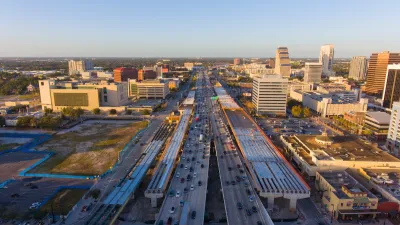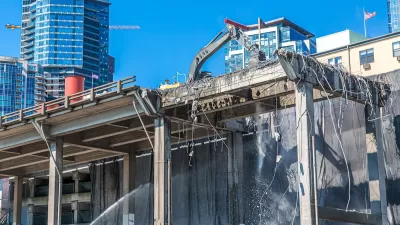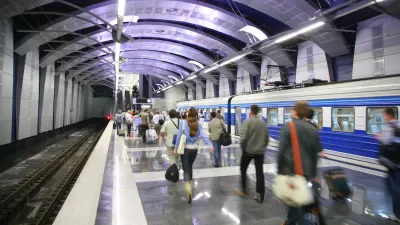The U.S. PIRG Education Fund has released a study of privatized toll roads across the United States, and concludes that they pose 'a long-term threat to the public interest.'
A growing number of states are considering arrangements in which a private operator provides an up-front payoff or builds a new road in return for decades of escalating toll receipts. The report assesses these deals and identifies a number of problems, including:
· Private toll roads typically require greater toll hikes to generate the same upfront payment that could be generated without privation.
· Private deals lead to serious loss of public control that hinders future transportation planning and typically force public payments to compensate private companies if policies reduce toll traffic.
· Deals are often conducted with inadequate public disclosure or input.
· States generally lack the capacity to oversee or enforce private road agreements
· Problems are compounded by the fact that contracts typically extend 50-plus years in order to obtain large federal tax subsidies.
The study examines 15 completed private road projects and 79 others that are proposed or underway.
Thanks to Phineas Baxandall
FULL STORY: Private Roads, Public Costs (PDF)

Americans May Be Stuck — But Why?
Americans are moving a lot less than they once did, and that is a problem. While Yoni Applebaum, in his highly-publicized article Stuck, gets the reasons badly wrong, it's still important to ask: why are we moving so much less than before?

Using Old Oil and Gas Wells for Green Energy Storage
Penn State researchers have found that repurposing abandoned oil and gas wells for geothermal-assisted compressed-air energy storage can boost efficiency, reduce environmental risks, and support clean energy and job transitions.

Placekeeping: Setting a New Precedent for City Planners
How a preservation-based approach to redevelopment and urban design can prevent displacement and honor legacy communities.

San Francisco’s Muni Ridership Grew in 2024
The system saw its highest ridership since before the Covid-19 pandemic, but faces a severe budget shortage in the coming year.

Colorado Lawmakers Move to Protect BRT Funding
In the face of potential federal funding cuts, CDOT leaders reasserted their commitment to planned bus rapid transit projects.

Safe Streets Funding in Jeopardy
The Trump administration is specifically targeting bike infrastructure and other road safety projects in its funding cuts.
Urban Design for Planners 1: Software Tools
This six-course series explores essential urban design concepts using open source software and equips planners with the tools they need to participate fully in the urban design process.
Planning for Universal Design
Learn the tools for implementing Universal Design in planning regulations.
Heyer Gruel & Associates PA
City of Moreno Valley
Institute for Housing and Urban Development Studies (IHS)
City of Grandview
Harvard GSD Executive Education
Salt Lake City
NYU Wagner Graduate School of Public Service
City of Cambridge, Maryland





























